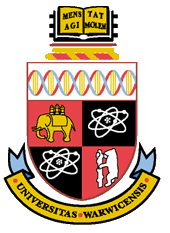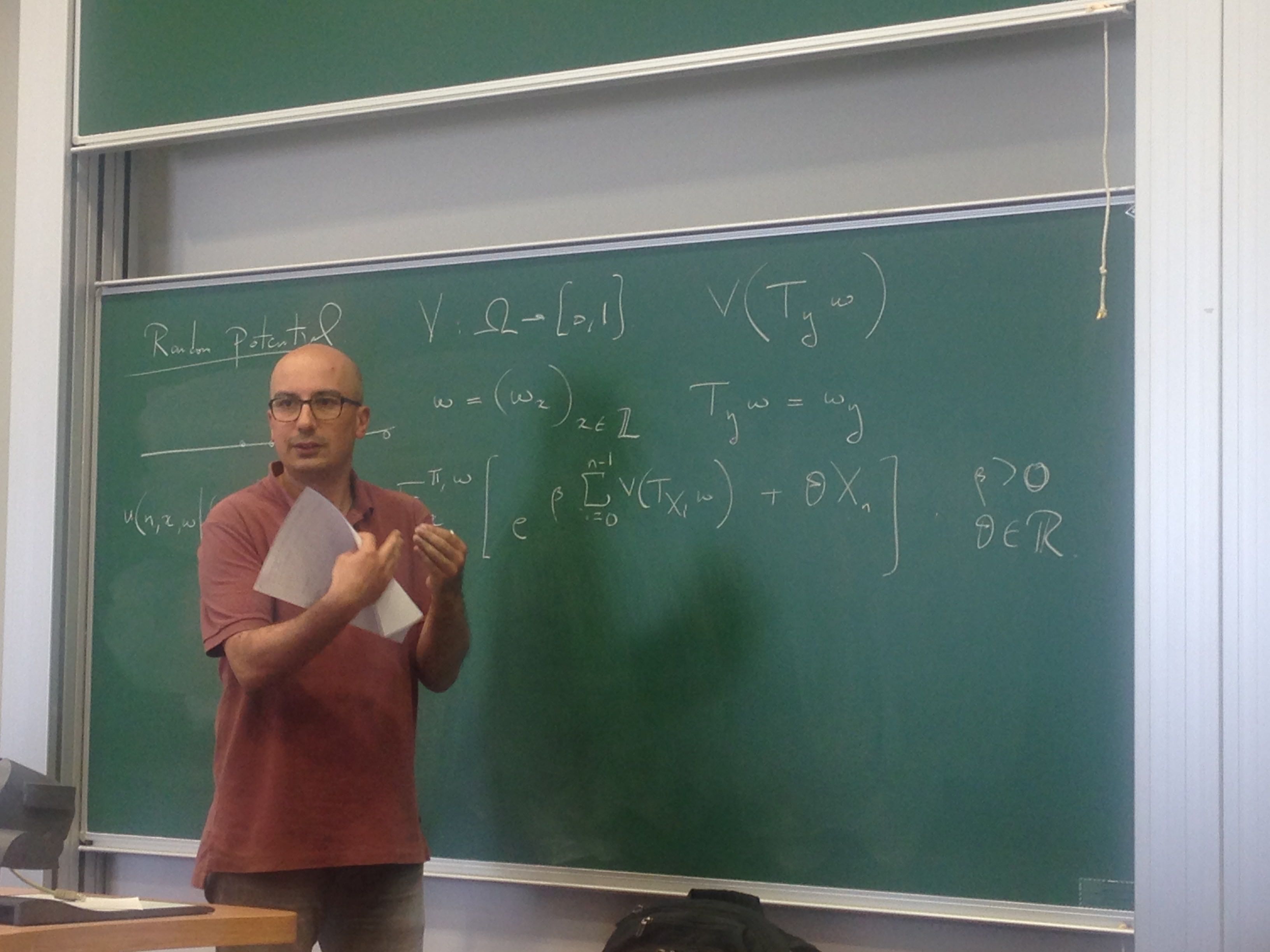Warwick Statistical Mechanics Seminar
in the Department of Mathematics
 |
This term, all seminars take place Thursdays at 2pm, room MS.04 (Zeeman Building), unless indicated otherwise. |
 Atilla Yilmaz, 15.06.2017 |
| 09.10.2025 | |
| 16.10.2025 | Kieran Ryan (University of Vienna) Ground states in the XXZ chain and the Lorentz mirror model with loop weight 2 We present some work in progress on infinite volume ground states of a quantum spin system in 1 dimension known as the Heisenberg XXZ chain. The work uses a representation of the chain as a probabilistic continuous time model of loops due to Ueltschi. The Lorentz mirror model with loop weight 2 is a model of random loops on Z^2. It can be thought of as a discrete time version of the quantum loop model, and has a simple coupling with the 6-vertex model. We use a recent result of Glazman and Lammers on the six-vertex model and a further, new coupling to show that for the Lorentz loop model, certain finite volume measures converge to a common infinite volume measure, which exhibits no infinitely long loops, and has slow decay of connection probabilities. Work is in progress on the same statement in the quantum loop model, and its consequences for the XXZ model: certain finite volume, finite temperature states converge to a common infinite volume ground state, with slowly decaying spin-spin correlations. In particular, these arguments do not use any integrability or exact solutions - just percolation-type arguments. We will introduce the several models involved here slowly and give some ideas of how they relate to one another. |
| 23.10.2025 | |
| 30.10.2025 | |
| 06.11.2025 | |
| 13.11.2025 | Nikolay Barashkov (Max Planck Institute, Leipzig) Normalisability for the Grand-Canonical $Phi^3_2$ measure We study the normalisability properties of the $Phi^3_2$ measure, with a grand canonical cutoff, studied previously by Jaffe, and Carlen-Fröhlich-Lebowitz. We identify a critical value of the cutoff, for which the measure becomes non-normalisable and study the behaviour at this critical value. We determine that at the critical point the measure becomes non-normalisable in contrast with the $Phi^6_1$ measure previously studied by Oh-Sosoe-Tolomeo. This is joint work with K.Seong and P.Sosoe. |
| 20.11.2025 | |
| 27.11.2025 | |
| 04.12.2025 | Mikhail Skopenkov (King Abdullah University of Science and Technology) Lattice models and discrete complex analysis We present new results on lattice models obtained using the ideas of discrete complex analysis. One result is a percolation formula that generalizes the known ones by Cardy and Schramm. Another result is an elementary model of an electron moving along a line, generalizing Feynman’s model and reproducing the usual quantum field theory in the continuum limit. The talk is elementary, and no background in quantum theory is required. This is based on joint papers with Michael Drmota, Fedor Kuyanov, Mikhail Khristoforov, Stanislav Smirnov, and Alexey Ustinov. |
| 11.12.2025 | |